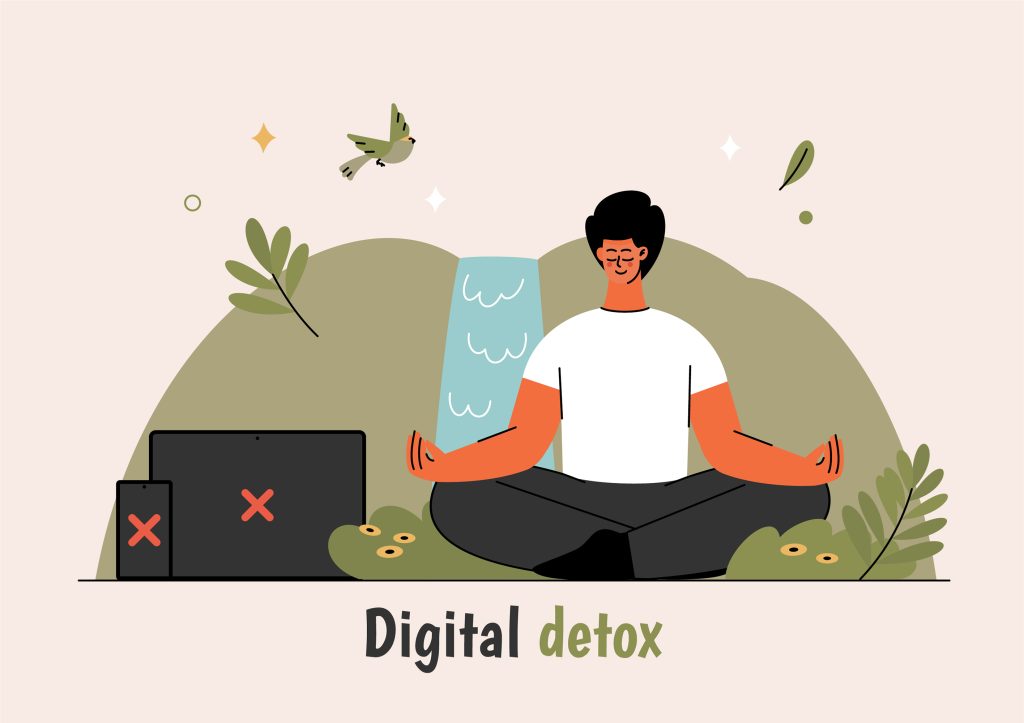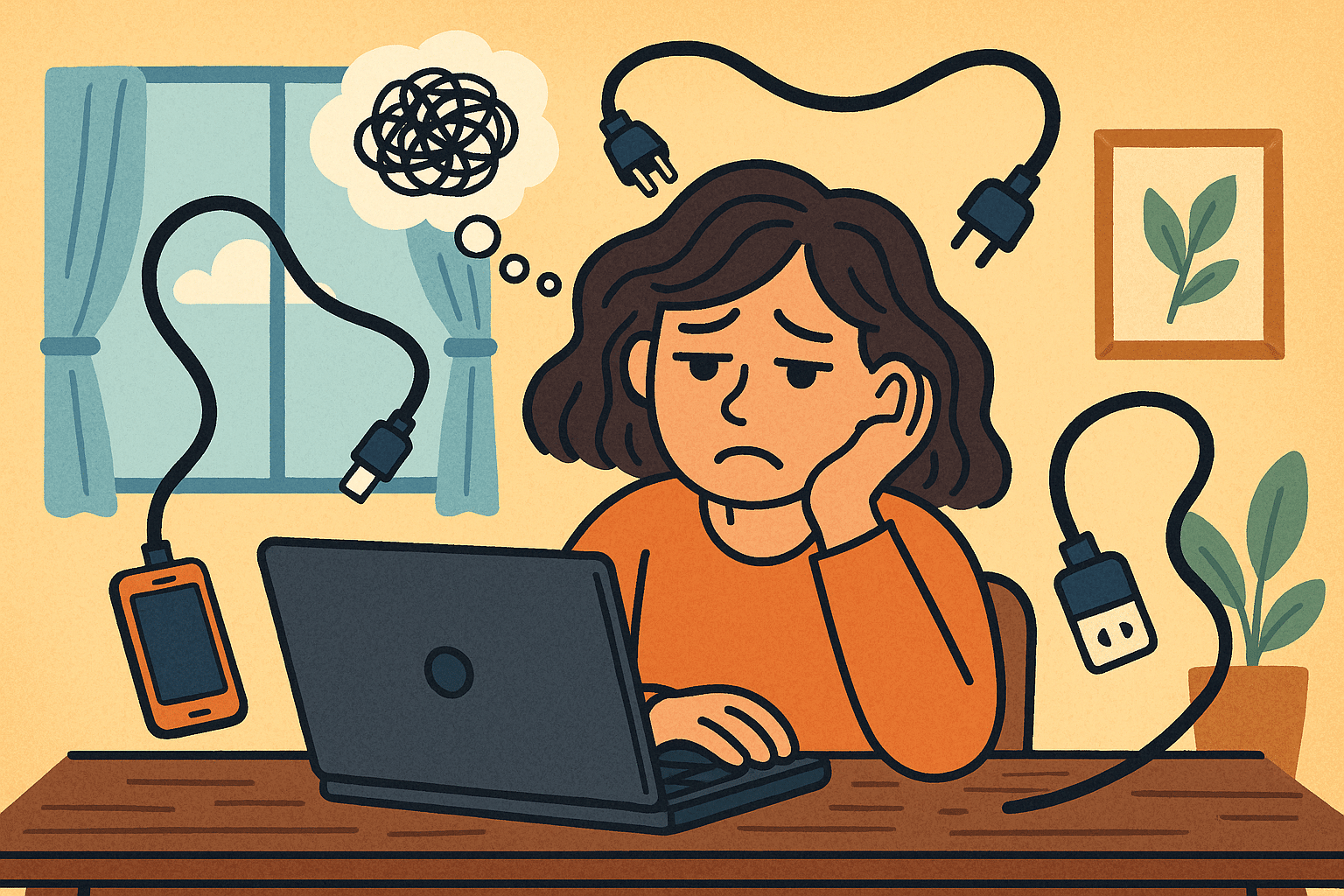In today’s fast-paced digital world, learning how to navigate the attention economy is more crucial than ever. With constant grabs for our focus, staying present can feel impossible. But emerging trends in digital wellness offer real tools to preserve attention and avoid burnout—as we navigate the attention economy with purpose.

1. The Attention Economy in 2025: Why It Drains Us
- Our attention is becoming a scarce resource, bombarded daily by apps, ads, and notifications.
- Excessive tech use has worsened mental fatigue: 11+ hours of screen time a day, linked to depression and cognitive strain.
- Attention fatigue is described as the “invisible tax” of modern life: task-switching, multitasking and constant checking wear us down.
2. Emerging Trend: Digital Detox is the New Luxury
Digital minimalism
- 2025 sees a surge in “dumb phone” use—flip phones, limited apps—to resist social media’s grip.
- Travel brands offer “digital detox retreats,” letting people unplug in nature for mental reset.
The science
- Digital detoxes restore mood, reduce anxiety, and improve focus—and may be easier than expected.
- Attention Restoration Theory shows that nature and low-stimulation environments help rebuild cognitive resources.
3. Practical Tactics to Navigate the Attention Economy
A. Weekly “digital sabbath”
- Experts recommend one tech-free day weekly to reset attention and reduce anxiety.
- Start small: no devices after 6 PM one day a week—work up to half- or full-day sabbaths.
B. Time-Blocking & Pomodoro
- Use focused blocks (25–50 mins) to fight continuous partial attention.
- Use tools like Focusmate or Be Focused to schedule distraction-free sessions.
C. Notification Discipline
- Silence non-essential alerts or group them into scheduled digest times.
- Use in-app settings or focus tools to gently redirect you when attention drifts.
D. Swap scrolling for nature
- Take frequent micro-breaks: standing, walking outside, or brief screen breaks every hour.
- Green settings or natural views help restore depleted attention.
E. Digital-Presenteeism Detox
- Allow “after-hours disconnect”: set strict boundaries so work emails and messages don’t intrude.
- Practice saying no to digital presenteeism to protect free time and mental space.
4. Structuring Your Attention-First Plan
| Goal | Strategy | Tools |
|---|---|---|
| Reduce screen stress | Digital sabbath | Flip phones, app timers |
| Improve focus blocks | Pomodoro & time-blocking | Focusmate, Be Focused, Calendar |
| Choose mindful apps | Curated use | PauseNow, Calm, forest |
| Reconnect off-grid | Nature breaks | Walking, hikes, city parks |
5. How It All Ties Together
By combining weekly detoxes, focused work techniques, attention-aware tools, and digital boundary setting, you form a holistic defense against burnout. It’s not about eliminating tech—it’s about managing attention as carefully as any other valuable resource.
6. Expert Insight & Industry Support
- McKinsey highlights mindfulness and digital wellness as a 2 trillion dollars-wellness sector actively growing in 2025.
- Wellness trends show “hardcare” meets “softcare”—digital detox meets biohacking—in a rising hybrid approach.
7. Next-Level Trends: What’s On the Horizon
- AI-powered nudging—tools like PauseNow can nudge you toward written intentions.
- Policy shifts—more countries are implementing right-to-disconnect legislation.
- Holistic wellness becomes mainstream, blending mindfulness apps, digital breaks, and mental health resources into daily life.
8. Quick-Start Checklist
- Choose a “tech sunset” evening or weekly detox day.
- Create time-blocked sessions using Pomodoro for key tasks.
- Disable non-essential notifications; consolidate alerts.
- Schedule short nature or walk breaks regularly.
- Install an intention-based nudging tool.
- Ground devices in another room when exercising or resting.
Conclusion
The attention economy may constantly vie for your focus—but with emerging trends like digital detox, time-blocking, digital boundary-setting, and AI-powered nudges, you can reclaim mental control. Practicing these habits ensures that your attention remains your resource—and not someone else’s.
References
- Christopher Zoboroski (2025) The 2025 Attention Economy: Why Focus Is the New Superpower. Available at: https://medium.com (Accessed: 26 June 2025).
- Jonathan Haidt (2025) Jonathan Haidt says we need a digital day off every week. Available at: https://www.weforum.org (Accessed: 26 June 2025).
- Cureus (2024) Digital detox. Available at: https://en.wikipedia.org (Accessed: 26 June 2025).






